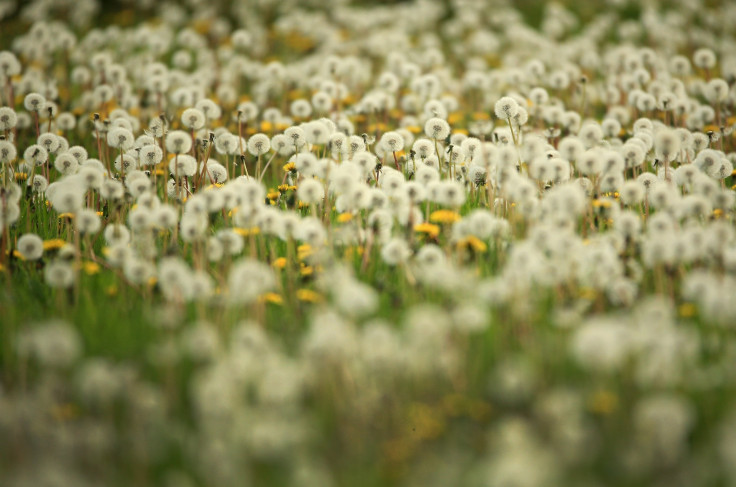Weed Appreciation Day 2016: 10 Interesting Facts About Plants That Aren't Marijuana

Monday is Weed Appreciation Day, but before you light up, read on. Weed Appreciation Day is exactly what it sounds like — a holiday for appreciating weeds, not marijuana (that observance is still a month away).
According to the National Day Calendar, Weed Appreciation Day has an unclear origin story. But it's honestly not about pot, so your best options for celebrating are gardening and learning. To help you do both, here are some facts about weeds, collected from the Weed Science Society of America, Penn State Extension and Preen:
- Merriam-Webster defines "weed" as any plant that isn't valued where it's growing. But the term can also be used to refer to "an obnoxious growth, thing or person."
- UrbanDictionary, on the other hands, defines it as "the answer to all in this horrible world of ours." So, there's that.
- There are two types of weeds: broadleaf and grassy. They can also be categorized by how long their life cycles are.
- In total, there are about 250,000 plant species. About 8,000 are considered to be weeds.
- About 200 weeds have become herbicide-resistant over time, and farmers are getting frustrated. "This is not a science fiction thing, this is happening right now. We're creating super weeds," genetically modified organism activist Gary Hirshberg told U.S. News and World Report recently.
- Among the most common weeds are yarrow, crabgrass, carpetweed, prickly lettuce and cocklebur, according to Rodale's OrganicLife.
- Dandelions are weeds, and they probably came to the United States with the pilgrims on the Mayflower.
- Dandelions have huge amounts of vitamin A and vitamin C. You can also make wine out of them by boiling the blossoms and combining the leftover water with sugar and yeast.
- The Examiner reported that some weeds are actually helpful in that they provide biodiversity. Others attract certain creatures — just consider butterfly weed.
- Poison ivy is considered a weed, but the allergen that gives it its reputation is called urushiol. To cure any encounter you have with urushiol, wash with soapy water and try not to scratch, according to the American Academy of Dermatology.
- There's one type of weed, called hydrilla, which can grow about 100 inches a day.
© Copyright IBTimes 2025. All rights reserved.
Join the Discussion






















